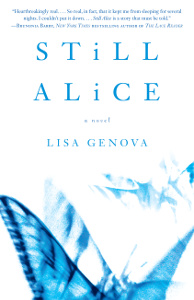 (Are there hobbies that don’t bring joy?)
(Are there hobbies that don’t bring joy?)
In this sixth installment of end-of-2020 positive notes, let’s talk about hobbies that have helped us get through this crazy year. I started the following a bit before the pandemic, but it proved to be the perfect distraction (except for those beginning months of global postal confusion).
A little less than a year ago, I signed up for two postcard exchange Web sites: Postcrossing and Postcard United. “Exchange” is not entirely the right word for it since you are sending postcards to people different from the ones sending you postcards so it’s exchange in a global sense, but not concerning the specific items. (In reality, on occasion such an exchange does happen, but it’s rare.) You might think the model wouldn’t work. After all, there is no direct incentive to sending out something nice since the person you are sending to is not the one sending you a card. Do people put any care into sending thoughtful cards then given that there is no obvious incentive to doing so? It turns out many do. On the user profile, it’s possible to signal what is of interest and many of the cards I’ve received (over 200 at this point) have addressed my stated likes such as cards (and stamps!) of turtles and modern and/or local art. Similarly, I try my best to send something the person has requested and have amassed quite a postcard collection to assist me in this.
With all the distancing that 2020 has involved, it’s been genuinely lovely to connect with people from across the globe. There are a great number of participants in East Asia, I’ve sent numerous cards to and received many cards from China, as well as Malaysia and Indonesia. The hobby seems to be very big in Germany and Russia as well. Some of this is just a numbers game (countries with large populations), but it doesn’t seem to be entirely about that. Of course, the activity comes with its set of costs not least of which is the postage and so this will pose constraints on who can participate. There are accounts in places like Germany with more than 10,000 cards sent and received, in such instances we’re talking some major financial investment in the hobby. Not that many other hobbies don’t come with costs, but I do find that interesting.
The sites put limits on how many cards you can have traveling at any one time, which can be a bit frustrating if you’re ready to jump in full speed, but is also realistic from the site’s perspective to establish that a new member is serious and will continue sending out cards. This is why one would end up joining more than one site, by the way, that way you can have more cards traveling at the same time (and thus also be receiving more).
Through this hobby, I’ve learned some interesting tidbits about philately around the globe. I was not aware, for example, of so-called maxicards (examples here through an image search). These are special issue stamps with corresponding cards with the stamp on the front side of the matching postcard. They tend to look wonderful and I’ve enjoyed getting a few from various corners of the globe. (If you have one to spare, I’m interested! As far as I can tell, neither the US nor Switzerland issues them these days so I haven’t been able to buy them for trade. Please correct me if I am wrong.)
From social media I gather that lots of people picked up bread baking as a hobby this year. I skipped that as I don’t eat bread. Has anyone started new hobbies this year that have worked out well? (I realize some of the previous posts have covered some related topics and I will have a post dedicated specifically to book reading as well as art making, but feel free to post about those types of hobbies here as well.)




 Covid times don’t allow for a lot of travel, but that doesn’t have to stand in the way of dreaming about and planning travel. My parents have written four books that put an interesting twist on getting to know a city: through its landmarks related to science. Their first in the series was
Covid times don’t allow for a lot of travel, but that doesn’t have to stand in the way of dreaming about and planning travel. My parents have written four books that put an interesting twist on getting to know a city: through its landmarks related to science. Their first in the series was 



 For sweets, I tried a
For sweets, I tried a  (Are there hobbies that don’t bring joy?)
(Are there hobbies that don’t bring joy?)